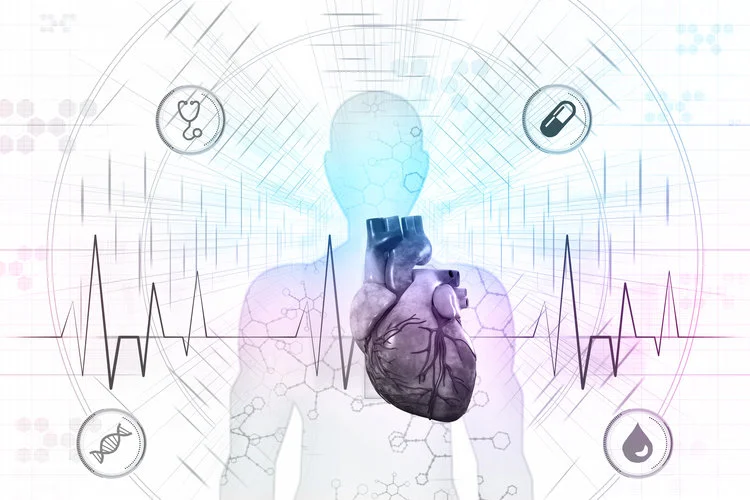Cardiogenetic Series Part 2: Conditions and What to Look Out For
Cardiogenetic Conditions: What Should the Healthcare Provider be on the Lookout For?
There are a wide range of cardiac conditions that can be inherited. One category that most are familiar with is that of the cardiomyopathies. Cardiomyopathy is a disease of the heart muscle that makes it more difficult for the heart to contract or relax. Cardiomyopathy can lead to heart failure.1 Examples of cardiomyopathies that can be inherited include: arrhythmogenic right ventricular dysplasia/cardiomyopathy, familial dilated cardiomyopathy, hypertrophic cardiomyopathy, restrictive cardiomyopathy, and left ventricular non-compaction cardiomyopathy. Genetic testing panels exist for these types of cardiomyopathy to help clinicians identify pathogenic variants that are known to cause disease.
Another type of heart condition that can be inherited is arrhythmia. Arrhythmias are heart rhythm problems that occur when the electrical impulses that coordinate heartbeats don't work properly, causing the heart to beat too fast, too slow, or irregularly.2 Examples of arrhythmias that can be inherited include: Brugada syndrome, Long QT syndrome and catecholaminergic polymorphic ventricular tachycardia.
The third type of condition that can be inherited and result in heart disease is familial hypercholesterolemia (FH). In FH, genetic mutations make the liver incapable of metabolizing (or removing) excess low-density lipoprotein (LDL). The result is very high LDL levels which can lead to premature cardiovascular disease and potentially cause heart attacks, strokes, and narrowing of the heart valves.3
Thoracic aortic aneurysm is another type of cardiac condition that can be genetic. A thoracic aortic aneurysm is an enlarged and weakened area in the upper part of the aorta which can lead to a tear in the artery wall (a dissection), that can cause life-threatening bleeding. People who are born with a genetic condition that affects the connective tissue in the body are particularly at risk of a thoracic aortic aneurysm. These inherited genetic conditions include Marfan syndrome and specific types of Ehlers-Danlos syndrome. Familial thoracic aortic aneurysm and dissection (TAAD), which is not associated with a genetic syndrome such as Marfan syndrome, can be inherited as well. Several mutations have been identified in genes such as ACTA2 that can cause this condition in families.4
A final category of heart conditions that can be inherited are congenital heart problems. About 30% of congenital heart defects are due to a genetic syndrome, such as DiGeorge syndrome or Noonan syndrome. DiGeorge syndrome, also known by the broader term, 22q11.2 deletion syndrome, is a disorder caused when a small part of chromosome 22 is missing. This deletion results in poor development of several body systems. This deletion often causes heart defects that can result in an insufficient supply of oxygen-rich blood to the body.5 Congenital heart problems that are not associated with a genetic syndrome may also cluster or run in families.
In our first article we explored why genetic testing for certain cardiogenetic conditions is so important. Now that we have provided information about the wide range of cardiac conditions that can be inherited, which patients should you refer for genetic evaluation and consideration of genetic testing? Genetic testing may be indicated for patients who have any of the symptoms in the list below.6 It is important to remain observant for any family history of these symptoms as well:
Unexplained cardiac arrest or sudden deaths in the family that might have been caused by an undiagnosed heart disease
Unexplained fainting, or fainting with exercise or emotional stress
Unexplained seizures, or seizures with normal neurological evaluation
ICD/pacemaker at under 50 years of age
Non-ischemic heart failure at less than 60 years of age
Idiopathic cardiomyopathy or enlarged heart
Irregular heartbeat - early onset arrhythmia (less than 50 years of age)
Early heart attack, coronary artery disease or stroke (men under 55, women under 65)
Enlarged aorta or an aortic aneurysm in the chest at less than 55 years of age
Sudden infant death syndrome (SIDS) in the family
Sudden unexpected death in epilepsy (SUDEP) in the family
Untreated very high cholesterol level
Heart defect present since birth
There are a number of heart conditions that can run in families, and it is important to be vigilant for the symptoms discussed above in your patients. These are the patients who may potentially benefit the most from genetic counseling and testing. In our next article in this series on cardiogenetics, we will discuss who to refer your patients to for genetic counseling and testing, and the types of genetic test results that may be received.
Please visit the following resources for more information:
Genetic testing registry: https://www.ncbi.nlm.nih.gov/gtr/
The National Society of Genetic Counselors: www.nsgc.org
Find A Genetic Counselor: https://www.findageneticcounselor.com/
Genetic Alliance: www.geneticalliance.org
Genetics Home Reference: http://ghr.nlm.nih.gov/
References:
1. https://www.mayoclinic.org/diseases-conditions/cardiomyopathy/symptoms-causes/syc-20370709
2. https://www.mayoclinic.org/diseases-conditions/heart-arrhythmia/symptoms-causes/syc-20350668
3. https://thefhfoundation.org/about-fh/what-is-fh
4. https://ghr.nlm.nih.gov/condition/familial-thoracic-aortic-aneurysm-and-dissection#genes
5. https://www.mayoclinic.org/diseases-conditions/digeorge-syndrome/symptoms-causes/syc-20353543
6. https://blog.cedars-sinai.edu/heart-disease-genetic-testing/
Kristina Habermann, MS, CGC, MBA
Kristina is a board-certified genetic counselor and a long-time enthusiast of the use of genetics to improve patients’ health and lives. She has practiced as a genetic counselor and worked in Sales and Marketing educating clinicians and patients about the risks and benefits of genetic testing; ranging from prenatal to cancer to pharmacogenetic testing in psychiatry. She particularly enjoys writing about genetics and genetic counseling and is currently the Assistant Program Director of the Genetic Counseling Graduate Program at LIU Post.


